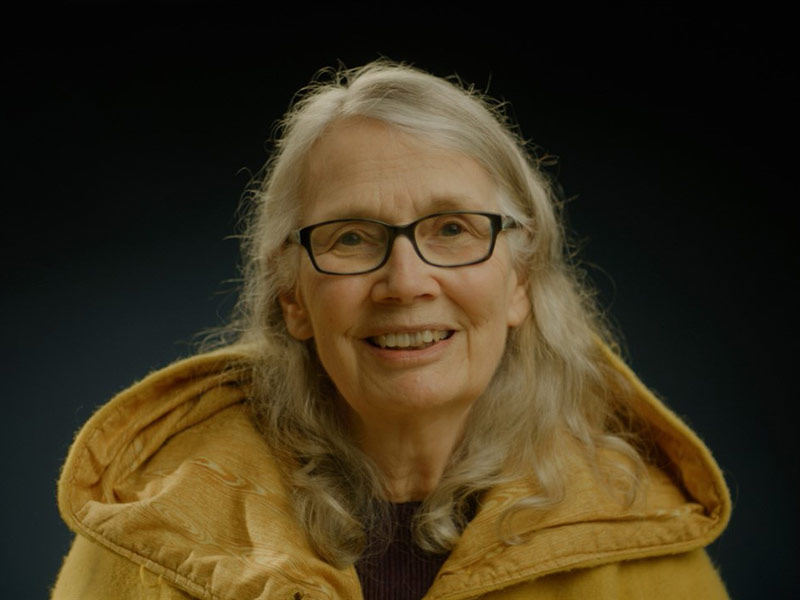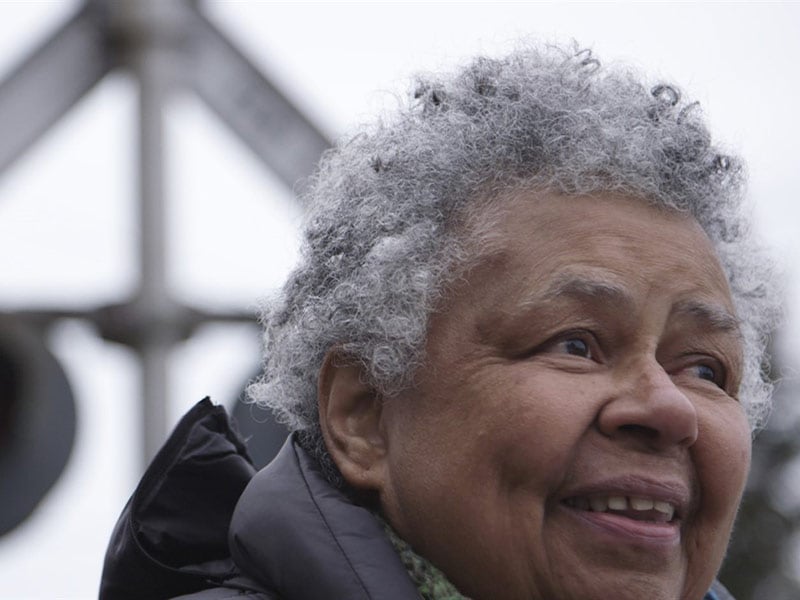A few months back, Vancouver captured the title of worst place to buy a house in Canada. I mean, obviously.
Why, you ask? It’s the land value. No, it’s the density, dummy. It’s the fault of international buyers. It’s speculation gone wild! It’s the flippers, the flappers, the greedy crappers.
Whatever contributes to the cause, it all comes down to a basic human need. Do you have a place to live, or don’t you?
Many of these issues will no doubt come up at a film screening and panel discussion taking place on Sunday at the Rio Theatre in Vancouver.
Lessons from the Past, Calls to Action for the Future, co-presented by Hot Docs' Citizen Minutes initiative and Women Transforming Cities, features two short documentaries: Carmen Pollard’s Militant Mother and Teresa Alfeld’s Jean Swanson: We Need a New Map.
The screening will be followed by a panel discussion with Lee Maracle, Audrey Siegl, Beverly Ho and Kimberly Wong, moderated by Ellen Woodsworth, the founder of the advocacy group Women Transforming Cities.
Both films take as their impetus the capacity of women to make change in their communities, simply by never taking no as an answer.
Militant Mother tells the story of the women of the Raymur housing project in the Strathcona neighbourhood, who took on the Canadian National Railway by physically placing their bodies in front of freight trains in order to ensure that their kids had a safe route to school.
In 1971, a single mother named Carolyn Jerome and her two young daughters moved to Raymur. Jerome had been assigned a place there after being evicted and denied housing based on the fact that she was a single parent and woman of colour.
In order to get to Seymour Elementary, Jerome’s young daughter had to walk across the railway tracks. “The trains ran day and night,” recalls Jerome in the film. Kids and shunting railway cars seemed a recipe for disaster, but when concerned parents met with representatives from the railway, they were greeted with resistance and outright derision.
The women decided that to get CNR’s attention, they would have to directly impede the company’s operations. On a cold January day in 1971, a group of them stood down an oncoming freight train. But after a series of failed agreements and broken promises from city hall, as well as from CNR, the trains were still coming and going as they pleased. The women upped the ante and planted a tent in the middle of the railway tracks.
Although they were charged with trespassing, the case was later thrown out. They had made their point. A pedestrian overpass was built and still stands to this day. As Jerome says, it was a win for the group of committed and militant women, but also for the city itself. “That’s what we were, we were the Militant Mothers.”

Anti-poverty activist Jean Swanson also learned how to fight for the betterment of her city over the long haul. The film We Need a New Map follows Swanson’s long political career from her very early days to her current role on Vancouver city council.
While slinging beer at the Patricia Hotel, Swanson met Bruce Eriksen and his partner Libby Davies and asked Eriksen for a job. Swanson’s role with the Downtown Eastside Residents Association gave her a particular perspective on the city.
“I was afraid of what did happen, would happen, that the city would be given over to developers and their interests would become paramount, as opposed to interests of ordinary people,” she says in the film.
In an interview clip from 1979, Swanson is asked why the Downtown Eastside neighbourhood got so much funding. Her answer: “In order to get rid of skid row, you have to get politicians to do their jobs.”
So, not a lot has changed in Vancouver.
In addition to running for council four times unsuccessfully, Swanson also ran for mayor in 1988.
“I’ve been involved with a lot of things that weren’t successful,” she quips. In spite of her soft-spoken demeanour, the woman is a street fighter from way back, unafraid to put her body on the line. After winning the Order of Canada in 2016, Swanson was arrested for blocking the Trans Mountain pipeline.
The young activists and organizers that she works with describe her as the grandma of the movement. Community organizer Sara Sagaii’s involvement with Swanson’s campaign for city council came about almost by accident.
As she explains in an interview in the film: “In 2017, the homeless counts came out and it showed that the number of homeless people had gone up by 30 per cent. I remember feeling really discouraged.” At the time, Sagaii was visiting friends in Toronto and thought she might just move there.
But the sight of Swanson campaigning for housing rights brought Sagaii back to Vancouver. “Finally, there’s somebody who wants to do something.... She just knows what is right and she’s going for it, over and over and over,” Sagaii says.
Although unsuccessful in her campaign for a seat on city council in 2017, in the following year Swanson was finally elected. “The biggest thing that I’ve learned from Jean Swanson is that it’s about the long haul,” says Sagaii.
The adage that the personal is political holds equally true in both films, but it also indicates that longer and more entrenched battles required collective action in order to make significant change.
None of this is new, and probably a lot of people are tired of having the same conversations about Vancouver’s poverty and housing problems over and over again with no solution in sight.
Vancouver is certainly not alone in becoming unaffordable. Almost every major city, with the possible exception of Vienna, suffers from similar forces. To be fair, there are developments afoot in Vancouver that look like they might change the landscape.
But in the interim, the fight to make a more sustainable and inclusive city continues.
Vancouver is somewhat infamous for driving people away. It’s not just the sky-high prices, the forests of newly sprouted towers and multimillion-dollar condos, it’s the sadness and desperation that seems to permeate the place.
Downtown is particularly harsh. The other day I walked by a young man who was lying face down in a pile of trash from Burger King. “That is someone’s kid,” I thought, as people passed by, no one even really paying much attention to the prone body.
It’s why the city needs armies of Militant Mothers and anti-poverty activist grandmas more than ever. ![]()
Read more: Rights + Justice, Housing, Municipal Politics, Film
















Tyee Commenting Guidelines
Comments that violate guidelines risk being deleted, and violations may result in a temporary or permanent user ban. Maintain the spirit of good conversation to stay in the discussion.
*Please note The Tyee is not a forum for spreading misinformation about COVID-19, denying its existence or minimizing its risk to public health.
Do:
Do not: